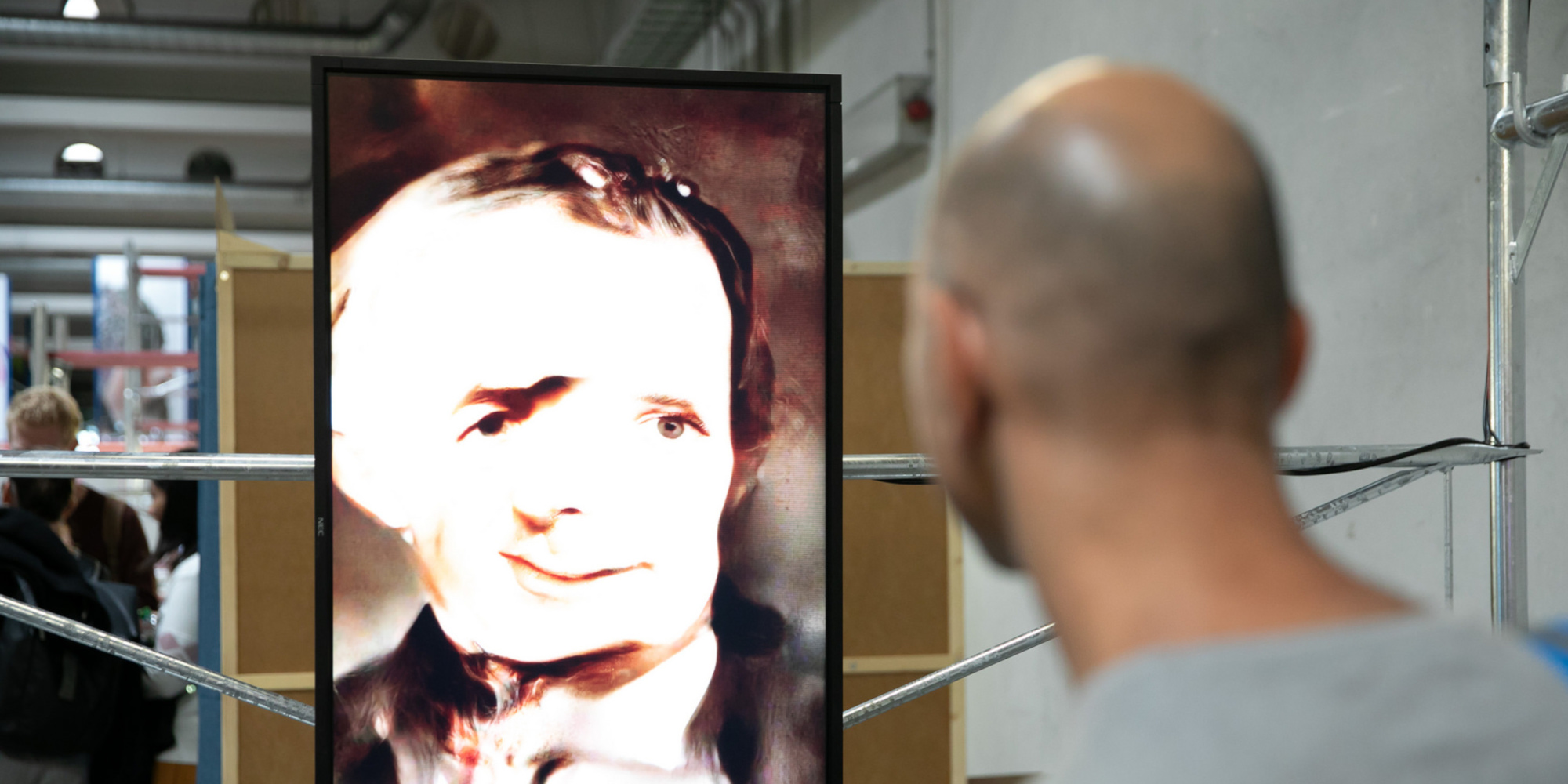In general, an error is still all too often perceived as something negative, as something undesired, which should have been avoided or, even worse, which needs to be concealed. Yet it is very likely that without errors our cultural techniques and technologies would not have emerged the way they have. Particularly the nagging feeling of dissatisfaction – when a project or a plan doesn’t pan out as initially intended – should be valued as something highly fruitful, as a motor for the ongoing process and against stasis. Quite possibly then, perfection and imperfection have always been co-dependent and inseparably bonded in a complex relationship. So the question is not, or not always, how to prevent errors and failure, but how to cope with them and harvest their possibilities. Errors, seen as deviations from the norm or the expected, can offer important alternatives and different perspectives. Nonetheless there is – as always – a dark side to the topic too, since errors can also be spread intentionally to mislead the people or distract from more important problems. But if an error is used deliberately as a means of deception, is it really an error? Or does it then simply become an instrument which is used in an abusive manner? So undoubtedly, there are ethical implications involved, and it is on our side, the side of the civil society, to be sensitive to these aspects.
Accordingly, the theme exhibition Error, Fake & Failure traces the broad phenomenon of error, spanning the interpretive frame from error as deviation from the norm and as failure or disappointment on the one hand and intentional forgery or deception on the other.
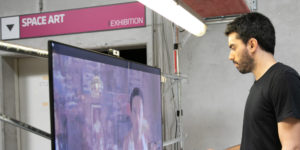
Inaccurate Collaborations
Cristóbal Valenzuela (CL), Anastasis Germanidis (GR)
Inaccurate Collaborations is a project that explores how generative and deterministic machine-learning algorithms can be used to create faulty and erroneous results that suggest new explorations for human-machine creative collaborations.
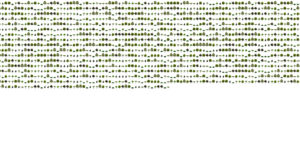
DEFOOOOOOOOOOOOOOOOOOOOOREST
Joana Moll (ES)
The project shows the number of trees needed to absorb the amount of CO2 generated by the global visits to google.com every second.

False Positives
Esther Hovers (NL)
The project False Positives is about intelligent surveillance systems – cameras that are able to detect deviant behavior within public space.
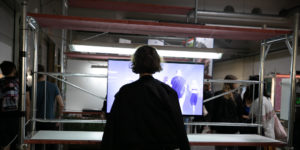
faster than light
Kentaro Kumanomido (DE/US), Thomas Anthony Owen (DE/US)
Faster than light (2018) is a hybrid performance-film developed in Athens, Greece.The film presents a multi-layered journey that explores the entanglements of gender representation, ecology, and quantum intelligence.
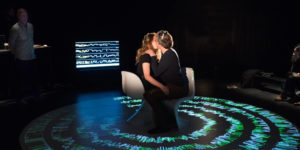
Kissing Data
Karen Lancel, Hermen Maat (NL)
Kissing Data encourages shared agency to explore, co-create and co-interpret intimate BCI data, to share dialogue and reflection on ethical design concepts.
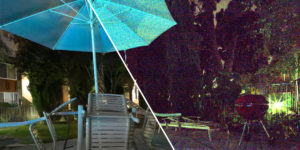
Learning to See in the Dark
Chen Chen (CN), Qifeng Chen (CN), Vladlen Koltun (US)
To support the development of learning-based pipelines for low-light image processing, we introduce a dataset of raw short-exposure nighttime images, with corresponding long-exposure reference images.
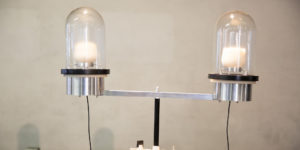
I Love you / I Hate you _TDS
Mathieu Zurstrassen (BE)
A computer gathers all the tweets posted by the current President of the United States on one hand and by a "Love Quotes" tweeter account on the other.
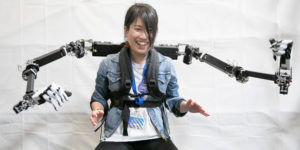
MetaLimbs
Tomoya Sasaki (JP), MHD Yamen Saraiji (SY)
MetaLimbs adds “new arms” that can be freely manipulated by strapping on two robotic arms.
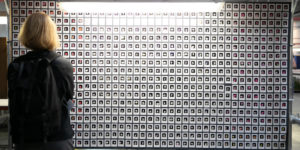
Myriad (Tulips) + Mosaic Virus
Anna Ridler (GB)
Drawing historical parallels from the “tulip-mania” that swept across Netherlands/Europe in the 1630s to the speculation currently going on around crypto-currencies, the video work Mosaic Virus is generated by an artificial intelligence (AI).
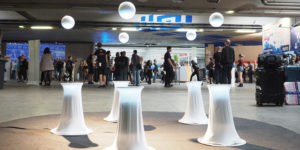
ObOrO
Ryo Kishi (JP)
ObOrO is a fragile kinetic light that has fluctuations and fascinates people with its frailty and instability.
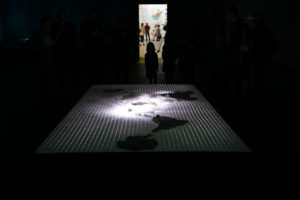
+b (ORBIT)
Michael Saup (DE), Andrea Winter (DE), Andreas Erhart (DE)
The work illustrates how this mastery is really the reiteration of a profound error and the subsequent compounding of that error.

79530 Self Portraits
Mario Klingemann (DE)
This work explores how a feedback loop of generative adversarial neural networks (GANs) is transforming errors into meaning.
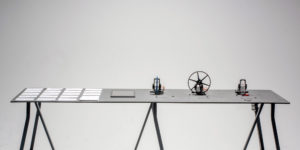
Sensible Data
Martin Hertig (CH)
Sensible Data ist eine interaktive Installation bestehend aus drei Maschinen, die dazu einladen, einen Reisepass aus Ihren persönlichen Daten zu erstellen.
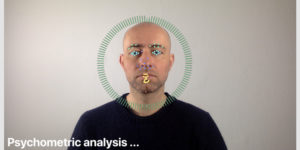
Smile to Vote – Political Physiognomy Analytics
Alexander Peterhaensel (DE)
Smile to Vote escalates the latest research findings in the field of psychometrics and merges them with the worry-free large-scale implementation of facial recognition systems in lifestyle products.

Spiel | an in-situ performance for prepared mouth
Peter van Haaften (CA), Michael Montanaro (CA)
Spiel physically unravels the tenuous synesthetic relationship between what is seen, heard and understood.

The MOMENT
Rachel Ramchurn (UK), Richard Ramchurn (UK)
The MOMENT is an interactive film which uses a Brain Computer Interface to collect attention data from the viewer that is recombined into a real-time narrative.

Die Tonfälle
Anatol Bogendorfer (AT), Hörstadt (AT)
Can the tones of voice of an online linguistic culture be examined and portrayed artistically?

Useless Weapons Series
Alexandra Ehrlich Speiser (AT)
A glitch is an “error” in a system. Glitches arise, almost like the spirit of the machine, emerging from the depths just to say “hello” in their own form on the surface.

Wikileaks: A Love Story
Anna Ridler (GB)
This installation shows the collision of public and private that sits at the heart of the Wikileaks project.
